Dirt roads. Markets filled with people bustling to buy vegetables. Elephants walking through large crop fields. Bells ringing from every direction. Temples engraved with images of religious figures. Thick, gold jewelry. All trademark characteristics of a typical idea of what India's culture encompasses. And yes, these details aren't too far off, but they don't clarify the entire scope of tradition the country proudly claims (along with some of its downsides). Living in America, I only get a chance to visit India every few years, but I think it's time for me to reclaim my title as an Indian. So if you're someone who has a burning question about what India really is like, your answers are all here.
Do cows really cross the road (even when there's a lot of traffic)?
Yes! The last time I went to India, there were four lanes of traffic stopped on the road (including lanes that weren't nearby) because a cow and a calf were crossing. We find cows to be extremely sacred, so we value them as much as we value the lives of the people around us (...maybe even more). Safe to say, I was still a little annoyed at the fact that we had to wait until both animals had completely left the road before we moved on. They took forever.
How long do Indian weddings last, and what happens in them?
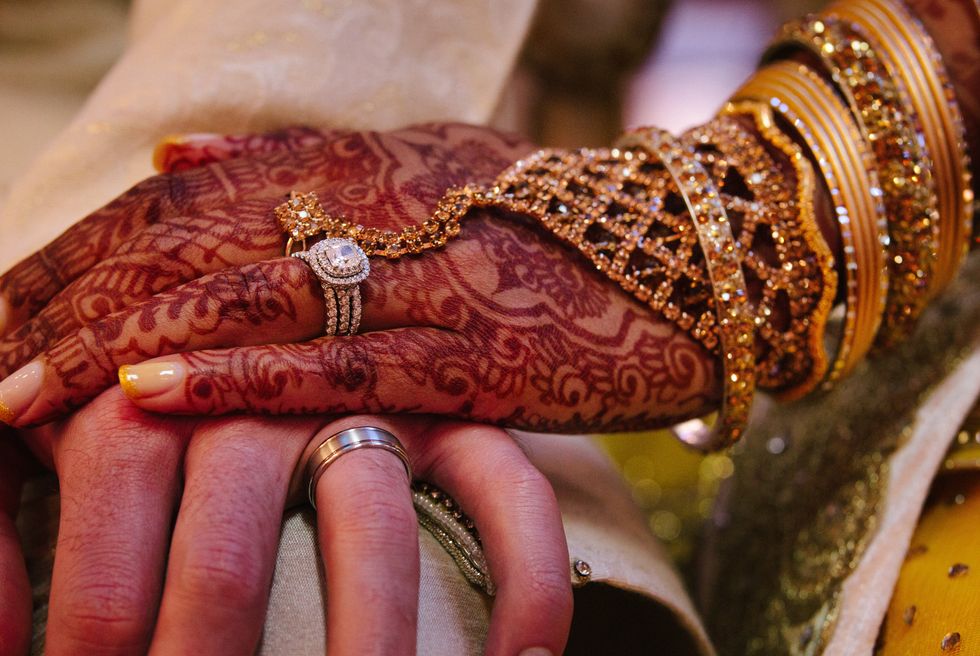
In my personal Hindu culture, a traditional Indian wedding lasts about three days, and each day is separated by a different activity.
On the first day, the two families spend time together from the afternoon to the evening. On the second day, the wedding happens (starting in the morning), followed by a large feast where all the guests attend. On the last day, in the evening, everyone goes to a temple, where they receive blessings from a priest. It's pretty cool to go to one, but my favorite part was watching an artist draw elaborate henna designs on everyone's arms.
Why are there so many temples in India?
Religion is a pretty big part of culture throughout the country, regardless of what someone believes in. A lot of daily life is dictated by a person's religion, and because people worship more often compared to Americans, temples are common to pass by. They're always crowded and loud because of how many people go. Sometimes, you'll wait in long lines spanning the entire perimeter of the premises to see a statue that's been publicized across India.
There was a rare occasion in which I went to a temple that was pretty empty, but it was one of my favorite experiences when visiting India. I got to see smaller details of the engravings on the walls while looking at the architecture of the building itself, and not once did I have to worry about getting stepped on. I do remember one moment when I walked through a pair of large doors into the open center of the temple, and the sand I stepped on was so hot from the sun that I had to run.
Does every meal come with rice (or a rice-based dish)?
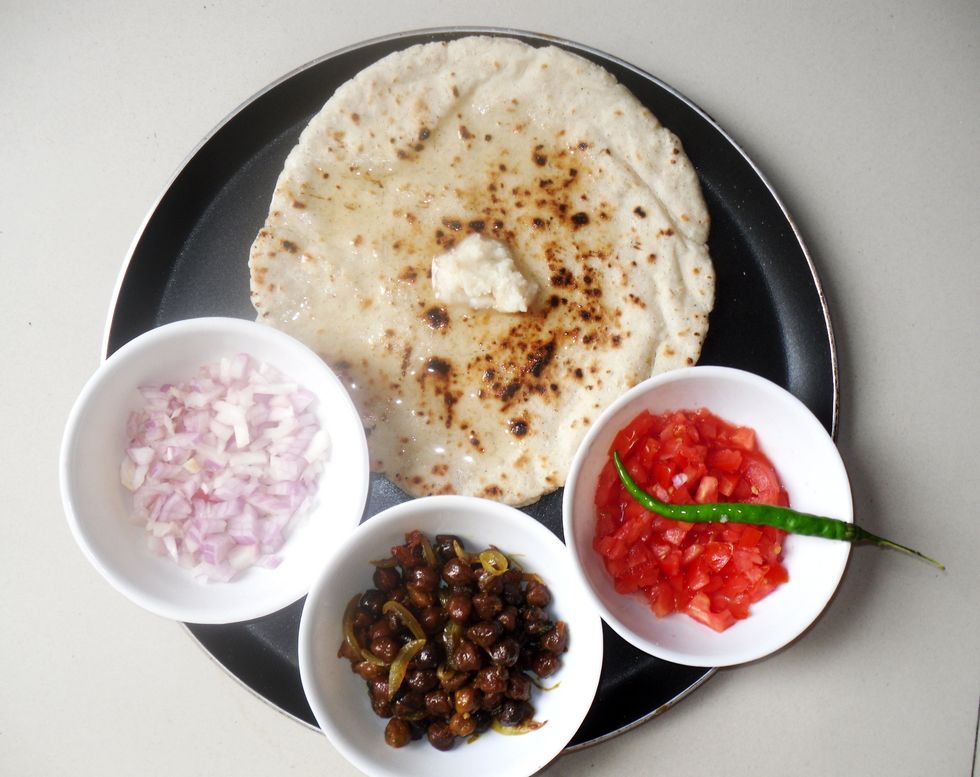
Nope. Certain parts of India have staple dishes, and pretty much just in South India, rice is paired with everything. On the other side, wheat is trademark in North Indian dishes, so — as an example — rotis are more common there. At the same time, we also have Pizza Hut, and they thankfully don't put rice on everything.
Do all houses get Internet and electricity during all times of the day?
Actually, no! While the majority of my visits are in the city, I've also stayed in numerous villages before, and simple things like beds, over-the-head showers and electricity aren't available in these regions. I've also spent nights sleeping under nets to protect myself from mosquitos because services we find to be common in America are not available in rural parts of India. One of the worst things about being in the outskirts is that there is no WiFi, so I've felt physically disconnected from the rest of the world. It's liberating to some extent, but it's mostly frightening to feel so detached.
There are also villages where electricity is available to people, but this doesn't run the entire day. It usually goes out around 8 or 9 p.m., but by then, everything's tuned down. There was one time when the power went out unexpectedly, and the entire village came outside and started playing games and having fun in the night. That's one of the most unforgettable memories I'll ever have.
Why are so many Indian last names so long?
Cultural aspects! It's common here in South India to have a longer last name, so you'll find everyone having one with four or five syllables minimum. But this is no reason for me not to feel proud to carry my name.
SEE ALSO: 10 Things All Patels Can Relate To
Does a normal outfit in India mean the same thing as a normal outfit in America?
Not exactly. This is up for debate because I've seen people wear both traditional Indian clothes and a t-shirt and jeans on any given day. I usually just wear what you'd find someone wearing in America, but saris and churidars are also common.
Where is the most emphasis placed in Indian beauty standards?

This is one of my favorite questions to answer, so I love being asked it. The most emphasis is placed on skin color. Skin lightening industries are huge in India because of this strange mentality of being more beautiful if one has lighter-colored skin, and though many people know this absolutely is not true, that culture is normalized in India.
Skin-whitening creams and powders can be found in any households, and you'll always find either Fair & Lovely or Pond's products in a household. I'd also been given skin lightening products as a welcoming gift when I came a long time ago, and my mom had to sit me down and tell me why I couldn't put any of them on.
SEE ALSO: From The Hidden Voices of 5 POCs: The Skin-Lightening Industry Profits Off Our Darkening Days
What does a typical day in India look like?
I've stayed in both the city and the village, so I can give insight into both lifestyles.
I usually stay in the city because my family lives there, and it starts off by waking up at 9 a.m. A maid will already be there, making breakfast or cleaning the house, and all family members within the area come over for the day. There are so many malls in the city, so we choose one and see what it has to offer. My favorite one so far (if anyone's wondering) is the Phoenix Mall in Bangalore, but that's only one of the many locations there are. There's sightseeing, maybe visiting a temple, and sometimes, we just take road trips to other parts of the state with a tourist attraction in mind.
In the village or in an ashram, the day starts with the morning bells ringing at 5 or 6 a.m., or you'll sometimes hear dogs barking outside. After getting ready for the day, if you're an adult, you go to wherever they need your attention, and children play around with animals. One of the ashrams I stayed at had a variety of animals, from goats that would not stay quiet to a peacock that would sometimes chase people. The early evening would be when people gather for prayer or singing, and then dinner is served. Everyone is in bed by 10 p.m. at the latest, but there isn't any urgent reason for people to be awake past then.
Are there also popular fast food chains there?
Oh yes, there definitely are. Domino's in India is iconic for its strange combinations of pizza and Indian foods like paneer, but they're so good. McDonald's is also a big one, and there are so many more vegetarian options to choose from. I highly recommend going to one just to recognize the differences there versus in America.
As a side note, many highly-esteemed restaurants in India are located within hotels, which is why if you hear someone say that you're eating at a "hotel," they really mean a restaurant, even if you're not going to a hotel.
What are the rules about arranged marriages? Does everyone have one?
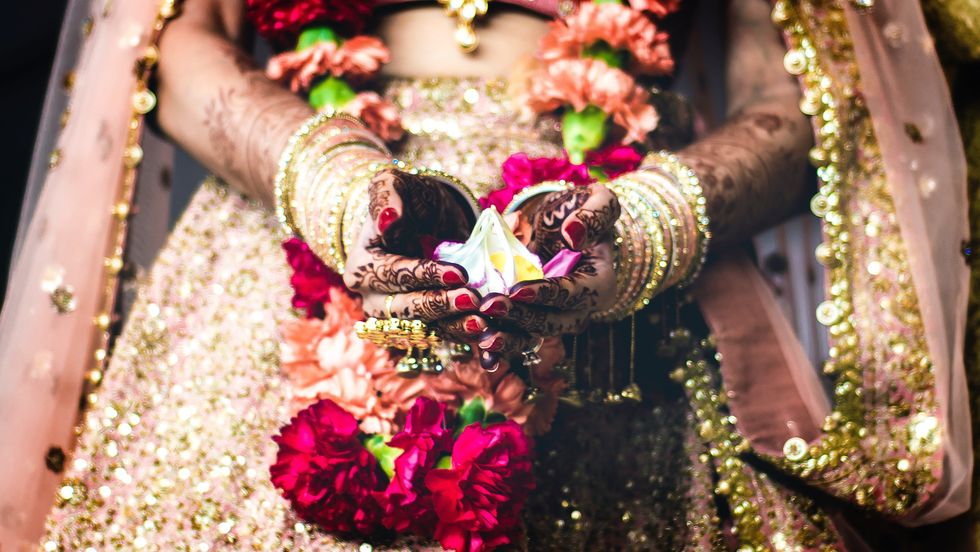
I also love this question because the lines are unbelievably blurred with this topic.
The rules about arranged marriages differ from family to family, even if two families follow the same religion. Mine is not big on the entire concept now that I think about it, though when mentally glancing over the topic, I somehow think we are just because of the religion we follow. That misconception is common (especially with Hindus), but it's really not true. If you're an Indian wondering about this, ask your parents about it upfront.
Not everyone has to have an arranged marriage, of course. There are radical beliefs that only accept arranged marriages, but these are also the same views that support other topics not widely accepted by Indians. And as the country itself has been progressing, the traditional views of marriage have also been changing rapidly.
Are all parts of the country just village-like?
Absolutely not. South India has some beautiful cities like Bangalore, Chennai and Coimbatore that are breathtaking just to see as you drive by. You'll really appreciate the diversity of the country when you visit places like these large cities because the misconception that the country is just a huge village will be destroyed immediately.
How accepting are Indians in regards to differing beliefs?
Again, this is a pretty vague question to answer because every family is different. In general, though, Indians are pretty accepting of beliefs across the world, but there are some big religious conflicts you can also find in the news that have been going on for ages. If you're asking about the typical westernized Indian, you'll find that we're extremely tolerant of beliefs because we've been exposed to such a diverse population.
Of course, that does mean that people who have always lived in India are not as experienced with a diversity of views, but that doesn't take away from the fact that Indians understand that not everyone follows the same ideas.
Is every Indian a vegetarian, and how do you know who is one?
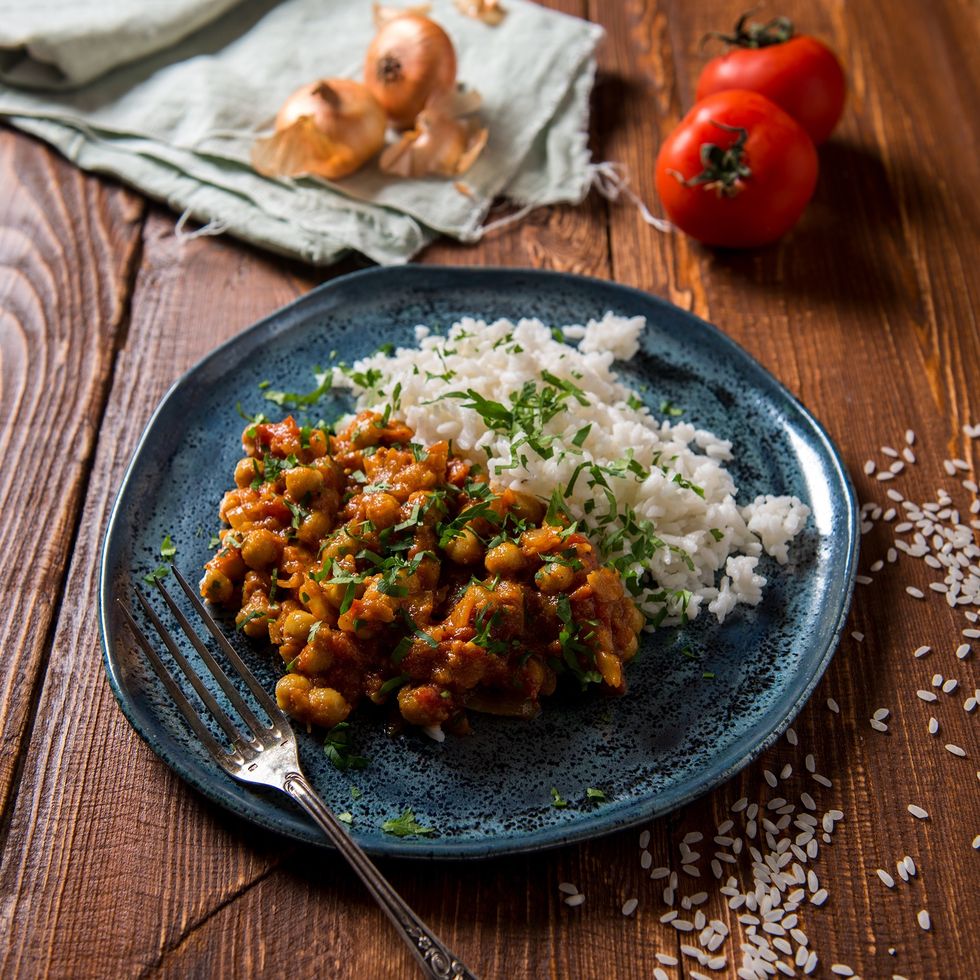
Not every Indian is a vegetarian, but many people are because of a combination of their family's practices, their religious beliefs and their dietary restrictions. I am a vegetarian because of my family's practices and my personal preferences.
You won't be able to look at an Indian and know immediately if they're vegetarian, but just ask. It doesn't hurt, and we're happy to explain what we support. As a vegetarian myself, it's always interesting to hear what other people have to say about it. There is one thing, though; an important part of Indian life is honoring cows for the resources they provide us with, so in that case, you will actually find it rare that an Indian eats beef.
Why are cows and elephants so important to people?
We find them to be sacred, for lack of better words.
Elephants are special to me because whenever we go to temples, we'll see an elephant on the side accepting money from someone and then placing their trunk on top of the person's head. This is a form of a blessing, and the person will bow down in the elephant's honor. That's always been something so cool for me to see, so I hope that I can get over my worry of larger animals and interact with an elephant one day.
Cows are extremely special to Indians because they're seen as nurturing figures that bless people with so many resources, like milk, butter and fertilizer. A lot of what people consume comes from cows, so we honor them whenever we can. That's why vast highways will stop for cows as they cross. It's a way of saying "thank you" for everything they've given us.
How difficult is it to drive?
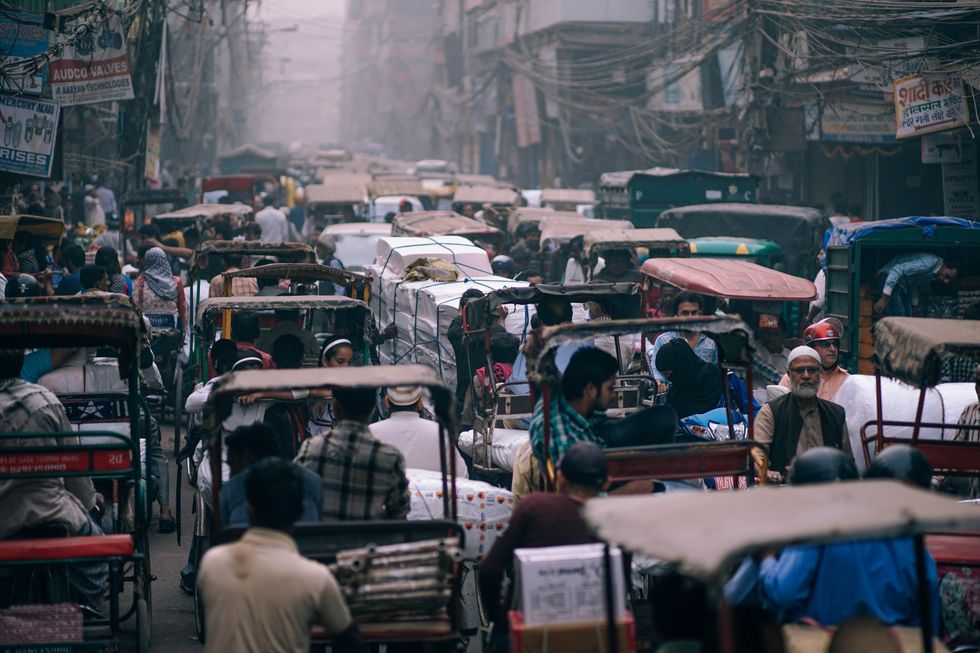
In India, simply being in the passenger's seat is a headache. Everyone honks in India, which is why on the car ride home from the airport each time I come back to America, I immediately fall asleep. No one honks here, but there, if you're not honking, you're doing something wrong. Plus, people drive like madmen. They'll weave through tiny gaps between cars skillfully, passing through several lanes of traffic at full speed. They brake at the last second, so if you're crossing the road, you have to be the one watching out so you don't get run over. (Except if you're a cow.)
At the same time, people also drive crazily because there are no crosswalks. In the middle of a busy road, people will run if they see a small time window when they can cross. And in the night when the roads aren't well-lit, it's impossible to see what's in front of you. Surprisingly, though, no one gets hurt.
Should I avoid traveling to India if I'm thinking about it?
Nope, it's worth the experience.
Through all the complaining about tiny things you wish were different while you're there, the beauty of the country comes from its ability to charm you with adventure. Simple activities in America (like going to a grocery store) are fun mysteries in India because you're moving through crowds of people while looking for what you need to buy. Everything is fun in India because you live life freely, and no one follows rules that constrict adventure.
Is it dangerous to be outside alone?
There definitely is some danger if you go out alone at night. It's never safe in any part of the world to do this, but in India, there are dogs sleeping on the streets and sketchy figures walking around at night. I have been catcalled before, even as a child, so I would suggest not being out by yourself.
Is it difficult balancing Indian culture with westernized beliefs?
Yes. It's a constant struggle to exemplify both your Indian roots and your American beliefs, but I think that's what makes it special. You learn to appreciate both sides of your life because you're the image of both India and America. I love being an Indian, and I love living here. I wouldn't trade the world for the life I have right now and for the experiences I have in India, and both countries are home to me.
SEE ALSO: Independence Day 2017 Album: Rainbows, Indian Culture, And WWII History


















